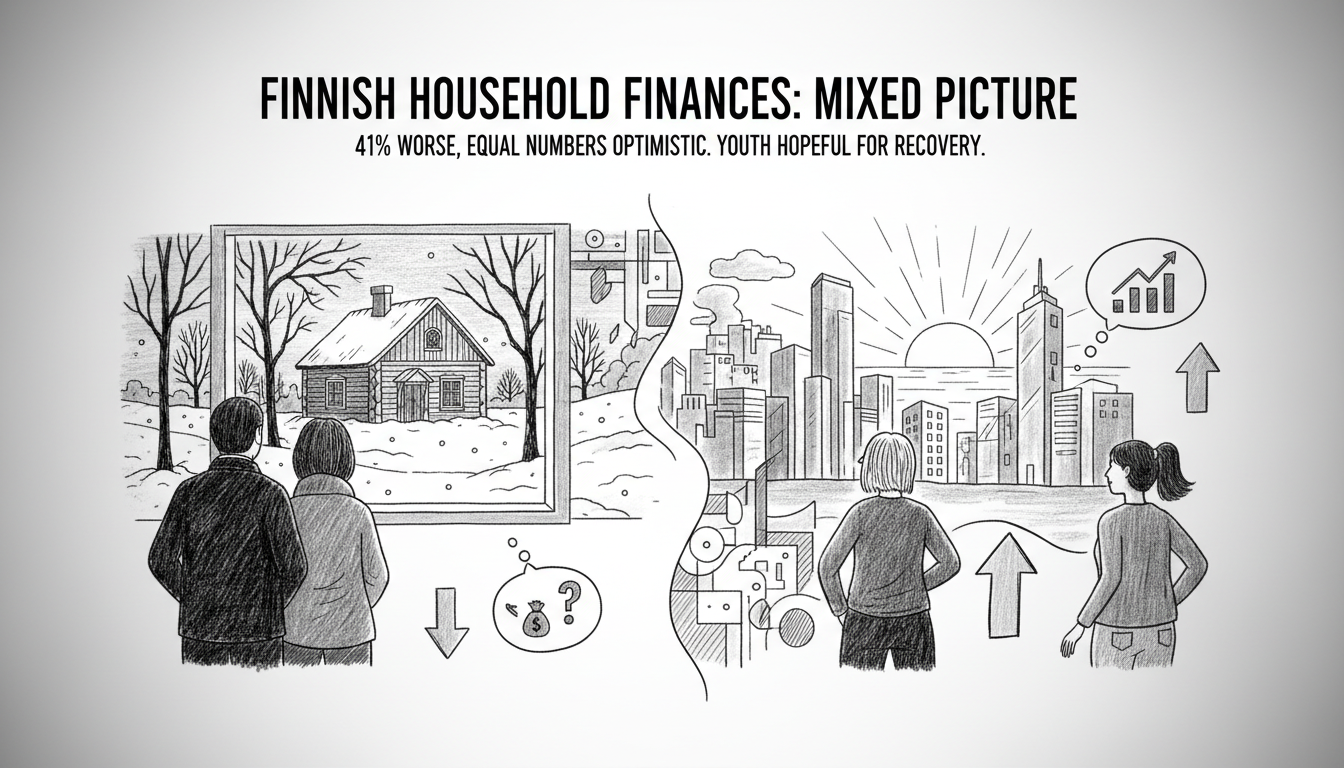New research reveals a complex financial landscape for Finnish households. Forty-one percent of respondents report their economic situation has worsened over the past two years. Yet equal numbers believe improvement lies ahead in the near future.
The comprehensive study shows 55 percent of Finns cover their expenses at least fairly easily. Sixteen percent struggle significantly with monthly bills. Another 28 percent manage to just barely make ends meet.
Younger age groups express the strongest optimism about financial recovery. This generational divide highlights different experiences across Finland's economic spectrum.
Significant variations emerge between demographic groups. People earning under 35,000 euros annually and women report stronger feelings of financial decline. Surprisingly, one quarter of those making 50,000 to 85,000 euros yearly still barely cover their regular expenses.
An economist involved in the research notes Finns have adapted to current conditions. People demonstrate resilience despite economic challenges. The Finnish economy has experienced near-zero growth for several years. Experts predict strengthening growth beginning next year.
Public sentiment aligns with economic forecasts and overall financial outlook. Most Finns maintain responsible financial habits despite pressures. Eighty-three percent pay bills on time consistently. Two-thirds have built financial buffers for unexpected expenses.
Active monitoring of personal finances shows a slight decrease recently. One-third admit occasionally forgetting bill payments. This suggests some households face increasing financial management strain.
Finland's economic context helps explain these findings. The country navigates post-pandemic recovery alongside broader European economic pressures. High living costs and inflation have impacted household budgets across income levels.
Finnish social safety nets provide some protection, but these results indicate many families feel the pinch. The mixed outlook—current struggles combined with future optimism—reflects Finland's transitional economic moment.
International readers should understand Finland maintains strong social protections compared to many countries. Yet these findings show even robust welfare states face challenges during economic uncertainty. The data suggests Finnish households employ various coping strategies while hoping for broader economic improvement.
The research provides valuable insights for policymakers and financial institutions. Understanding household financial stress points helps shape effective support measures. Future economic developments will test whether current optimism proves justified.

